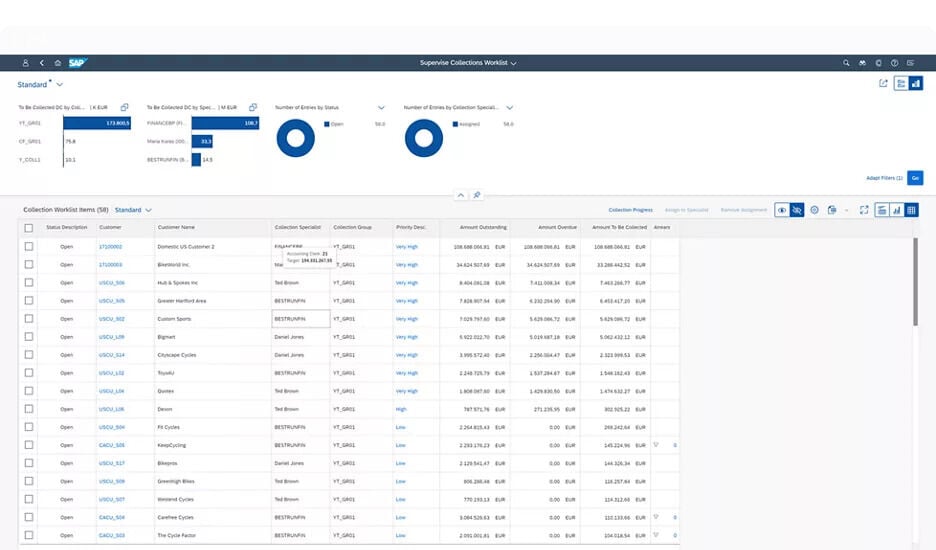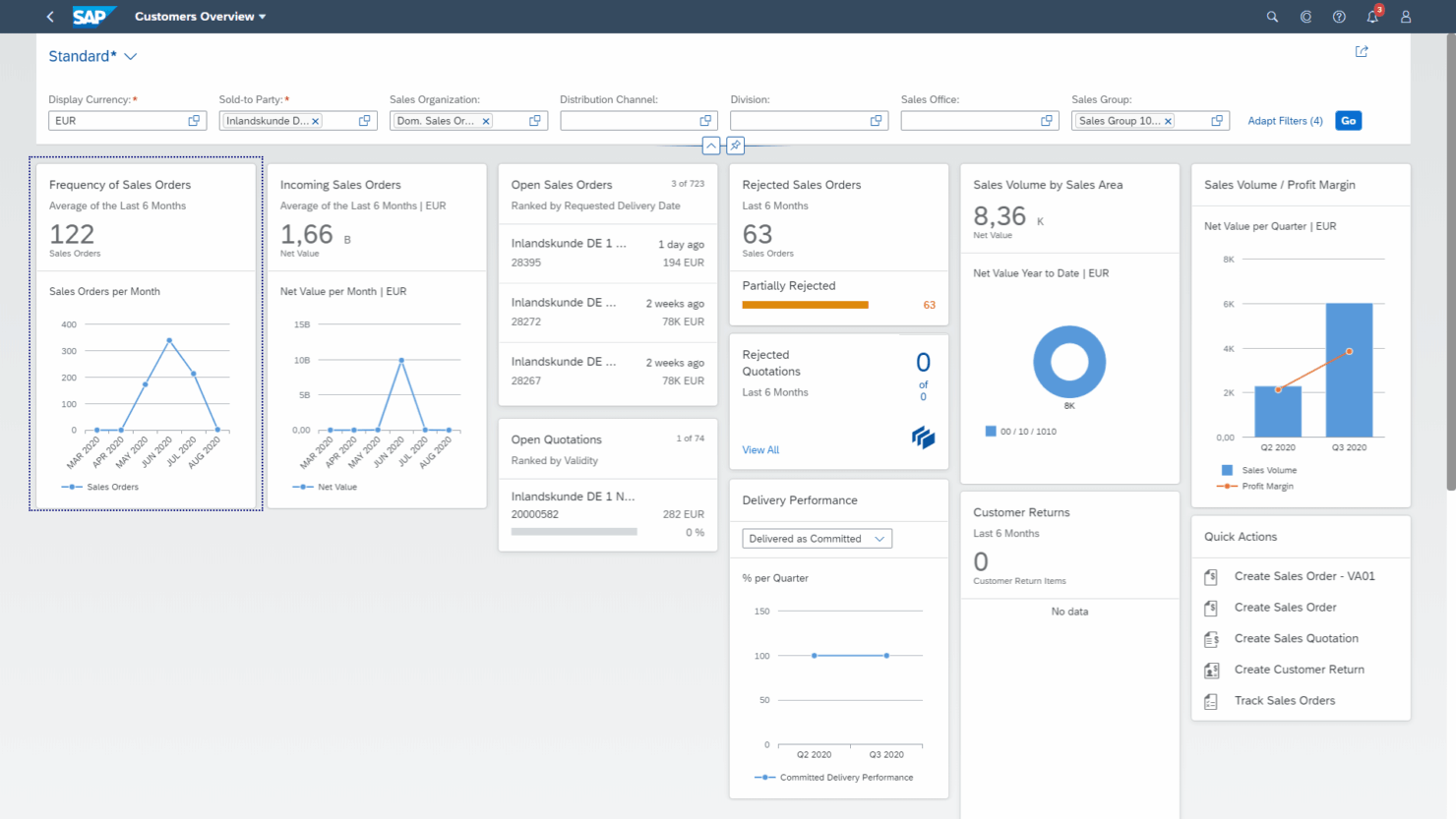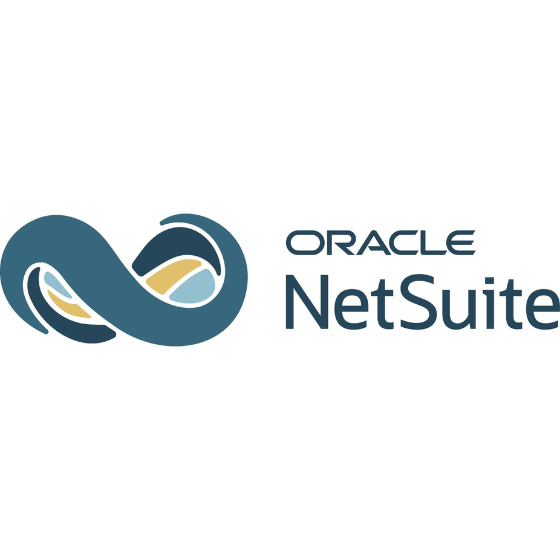SAP S/4HANA Review: Pros, Cons, Features & Pricing
SAP S/4HANA (also known as SAP S/4HANA Cloud) is an enterprise resource planning (ERP) software that integrates core business functions into a unified platform.
It’s best for large enterprises across industries like manufacturing and finance that require real-time data analytics and complex process management. Overall, SAP S/4HANA helps your team make data-driven decisions, enhancing efficiency, user experience, and scalability.
In this article, you’ll find an overview of SAP S/4HANA's features, pros and cons, best and worst use cases, and pricing. If you’re a financial analyst looking for an advanced system to streamline data management, this SAP S/4HANA review is for you.
SAP S/4HANA Evaluation Summary

- From $0.75/unit/month (600 units and 3-month contract minimum)
- 30-day free trial
Why Trust Our Software Reviews
SAP S/4HANA Overview
pros
-
Broad marketplace of extensions and partner apps to expand capabilities.
-
Strong tools to manage regulatory requirements across regions.
-
Highly configurable processes to match specialized business needs.
cons
-
It may not be the best fit for smaller teams due to its complexity.
-
Scaling or adding modules may increase total ownership expenses.
-
Upgrades can demand significant IT effort and planning.
-

LiveFlow
Visit WebsiteThis is an aggregated rating for this tool including ratings from Crozdesk users and ratings from other sites.4.9 -

Float Financial
Visit Website -

Vena
Visit WebsiteThis is an aggregated rating for this tool including ratings from Crozdesk users and ratings from other sites.4.5
How We Test & Score Tools
We’ve spent years building, refining, and improving our software testing and scoring system. The rubric is designed to capture the nuances of software selection and what makes a tool effective, focusing on critical aspects of the decision-making process.
Below, you can see exactly how our testing and scoring works across seven criteria. It allows us to provide an unbiased evaluation of the software based on core functionality, standout features, ease of use, onboarding, customer support, integrations, customer reviews, and value for money.
Core Functionality (25% of final scoring)
The starting point of our evaluation is always the core functionality of the tool. Does it have the basic features and functions that a user would expect to see? Are any of those core features locked to higher-tiered pricing plans? At its core, we expect a tool to stand up against the baseline capabilities of its competitors.
Standout Features (25% of final scoring)
Next, we evaluate uncommon standout features that go above and beyond the core functionality typically found in tools of its kind. A high score reflects specialized or unique features that make the product faster, more efficient, or offer additional value to the user.
We also evaluate how easy it is to integrate with other tools typically found in the tech stack to expand the functionality and utility of the software. Tools offering plentiful native integrations, 3rd party connections, and API access to build custom integrations score best.
Ease of Use (10% of final scoring)
We consider how quick and easy it is to execute the tasks defined in the core functionality using the tool. High scoring software is well designed, intuitive to use, offers mobile apps, provides templates, and makes relatively complex tasks seem simple.
Onboarding (10% of final scoring)
We know how important rapid team adoption is for a new platform, so we evaluate how easy it is to learn and use a tool with minimal training. We evaluate how quickly a team member can get set up and start using the tool with no experience. High scoring solutions indicate little or no support is required.
Customer Support (10% of final scoring)
We review how quick and easy it is to get unstuck and find help by phone, live chat, or knowledge base. Tools and companies that provide real-time support score best, while chatbots score worst.
Customer Reviews (10% of final scoring)
Beyond our own testing and evaluation, we consider the net promoter score from current and past customers. We review their likelihood, given the option, to choose the tool again for the core functionality. A high scoring software reflects a high net promoter score from current or past customers.
Value for Money (10% of final scoring)
Lastly, in consideration of all the other criteria, we review the average price of entry level plans against the core features and consider the value of the other evaluation criteria. Software that delivers more, for less, will score higher.
Core Features
Financial Management: With SAP S/4HANA, you can manage your financial operations with precision. Across several tools for accounting, forecasting, compliance, and risk management, you can streamline financial processes (like accounts payable and accounts receivable) and reduce manual workloads.
Supply Chain Management: SAP S/4HANA gives teams visibility across the supply chain, improving logistics and inventory management. This ensures timely deliveries and optimized resource allocation for better business operations.
Manufacturing Solutions: Teams can efficiently plan and control production processes, enhancing productivity and reducing waste. This SAP ERP feature supports complex manufacturing operations with real-time data insights.
Procurement Management: Teams can easily streamline purchasing processes, ensuring cost-effective procurement and supplier management. With this feature, you can maintain strong supplier relationships and control spending.
Project Management: SAP S/4HANA’s tools for planning, execution, and monitoring help keep your projects on track. Ultimately, this enhances collaboration and resource management across teams.
Sales and Distribution: SAP S/4HANA helps teams optimize sales operations and manage customer relationships effectively. This feature supports order processing, billing, and sales analytics to boost customer satisfaction.

Ease of Use
SAP S/4HANA offers a rich set of features, but its complexity can be challenging for new users. If your team is familiar with ERP systems, you'll appreciate its depth and functionality, though the initial learning curve is steeper than other solutions.
The user interface isn’t entirely user-friendly at first, and may seem overwhelming, but with time and training, you can unlock its full potential. For those ready to invest in understanding its capabilities, it proves to be a powerful tool for managing intricate business processes.

SAP S/4HANA Specs
- API
- Budgeting
- Calendar Management
- Expense Tracking
- External Integrations
- Forecasting
- Inventory Tracking
- Project Management
- Resource Management
- Supplier Management
Alternatives to SAP S/4HANA
SAP S/4HANA FAQs
Is SAP S/4HANA suitable for small businesses?
How does SAP S/4HANA handle data security and compliance?
Can SAP S/4HANA support multi-national operations?
How does SAP S/4HANA improve decision-making?
How does SAP S/4HANA support industry-specific needs?
Can SAP S/4HANA integrate with existing systems?
What kind of support does SAP S/4HANA offer post-implementation?
What's Next?
Ready to compound your abilities as a finance professional? Subscribe to our free newsletter.






